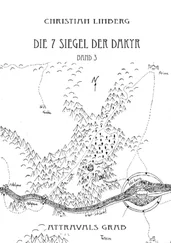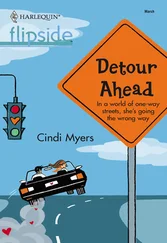“Yes?”
“Your daughter. What happened to her?”
Galina turned, cocked her head at an awkward angle, as if she were trying to hear something from the next room. Or maybe it was from somewhere further away.
“She was killed,” Galina said.
“Killed?” Joanna wasn’t prepared for that word. Dead, yes, but killed ? “I’m so sorry—that’s horrible. How, Galina? What happened?”
Galina sighed. She looked away, up at the shadow of the crucifix still visible on the wall. She made the sign of the cross with a slightly trembling hand.
“Riojas,” she whispered. “Have you heard of Manuel Riojas?”
TWENTY-FIVE
Galina was staring at mother and child.
She was thinking:
Holy Mary, Mother of God.
For just a moment it was like that picture on my bureau. Faded almost to black and white after so many years, but suddenly come to life. Yes.
It was me. And her. My child.
She was back in my arms. She was that young again.
Just a niña. My niña.
Was she ever that small?
Was she?
You can remember, can’t you?
CLAUDIA.
Clau-di-a.
Her name was like a song. Scream it down the streets of Chapinero around suppertime, or down the stairs of their apartamento after school, and it was hard to keep its singsong rhythm out of your voice—even when you were good and mad. Even when you were pretending to be mad, because Claudia hadn’t done her homework yet, or she was late to dinner.
It was impossible to really be mad at her. She was that kind of child. The gift from God. She always got around to doing her homework eventually, and she always did it well enough to get As.
She might be late for supper too, but when she arrived, out of breath and suitably contrite, she’d barrage them with a dizzying recounting of the day’s events.
Turn down the radio and eat, Galina would say.
But the truth was, she enjoyed listening to the radio more than she enjoyed seeing her scrawny daughter eat.
Claudia was one of those oddly aware children. Precociously sensitive to the world and to most of its inhabitants. An unrepentant toy-sharer, even after her favorite doll—Manolo the bullfighter—had his leg torn off by the bratty girl down the hall.
She was the kind of child who wore out the word why.
Why this, why that, why them ?
In a country like Colombia, Galina always believed why was a word best avoided.
Maybe it was destined, then, that when Claudia got to La Nacional University—with honors, of course—she’d fall in with a certain crowd. That when she started getting answers to those persistently indignant questions—like why do one percent of Colombians control ninety-eight percent of the wealth, why has every program to alleviate poverty and hunger failed miserably, why were the same people saying the same things in the same positions of power, why, why, why —she’d align herself with those who might do something about it.
Or, at least, talk about doing something.
Simple political clubs at first. Harmless debating societies.
Don’t worry, Mama, she’d tell Galina and her father. We drink coffee and argue over who’s going to pay the bill. Then we talk about changing the world.
Galina did worry.
She had a reasonably developed social conscience herself; it had never done her much good. She could still remember the rallies for Gaitán—the half-mestizo leader determined to democratize Colombia—and recall with poignant fondness the feeling that had wafted through the streets like a spring breeze in the dead of winter. I am not a man, I am a people. She could remember his riddled body on the front page of her father’s newspaper. After that, a kind of fatalism had set in—like hardening of the arteries, it came progressively with age. The young were inoculated against that particular disease; it took years of wear and tear before idealism crumbled like so much bric-a-brac.
Claudia began spending more time out of the house.
More late nights, which she’d attribute to one boyfriend or another.
Galina knew better.
Claudia was flush with love, yes. But not for a boy. That nervous agitation and those shining eyes were for a cause. She had a monstrous crush on a conviction.
Now when Galina warned her about becoming involved in la política, she was invariably met with stony silence or, worse, an exasperated shake of the head, as if Galina could have no concept of such things. Of what was wrong and needed fixing. As if she were an imbecile, blind and deaf to the world.
It was precisely the opposite. It was her very knowledge of the world—of how things worked in Colombia, or didn’t, because in truth nothing worked in their country, nothing at all—it was that painfully accrued understanding that made her so frightened for her daughter.
When did Claudia first make contact with them ?
Maybe when she told Galina she was going on a holiday excursion with girlfriends. To Cartagena, she said. When she returned ten days later, there wasn’t a tan line to be seen. If anything, she looked paler. The weather was awful, she explained. Galina was sorely tempted to check the papers to confirm this. She didn’t.
Cartagena was north. But so, she knew, was FARC.
These little trips became more and more routine.
To a university seminar, she’d explain.
To visit a friend.
A camping trip.
One lie after another.
What was Galina to do? Claudia was of age. Claudia was in love. What were Galina’s options, other than to wait it out, hope it would pass like most first loves do. She was being handed a tissue of lies, and she was using it to dry her tears.
Claudia began dressing down. All kids did to some extent, but Claudia wasn’t making a fashion statement. More a statement of solidarity. She began going days without makeup, without so much as peeking into a mirror.
She didn’t know that it only made her more beautiful.
Had Galina mentioned how lovely Claudia was? How perfectly exquisite? Almost feline. Sinuous, graceful. Her eyes, of course. Oval, deep amber, and her skin what Galina’s madre used to call café au lait. She must’ve inherited her looks from someone other than Galina. Maybe from her paternal grandmother, the chanteuse, a ventello singer of some renown who’d reportedly left broken hearts from Bogotá to Cali.
One day Claudia went away and didn’t come back.
Another holiday excursion, a seaside jaunt with friends. But when Galina called these friends, frantic, panicked, two days after Claudia’s supposed return had come and gone with no Claudia, they professed total ignorance.
What holiday trip?
Odd. She didn’t feel surprise. Just confirmation. That, and simple, unrelenting terror. She sat by the telephone, trying to will it to ring. Trying to keep herself from picking it up and dialing the policía. She knew where Galina was; bringing the policía into it would’ve been worse than doing nothing.
Eventually, Claudia did call.
Galina ranted, raved, screamed. The way you admonish a child. How could Claudia not call, how could she?
Claudia wasn’t the little girl late for dinner anymore.
I’m with them, because to not be with them is to be with the others, she said.
She spoke assuredly. Logically. Even passionately. It’s possible there was a part of Galina, the long-buried part of her that once cheered beside her father for Gaitán, that might’ve even empathized with her.
Читать дальше












